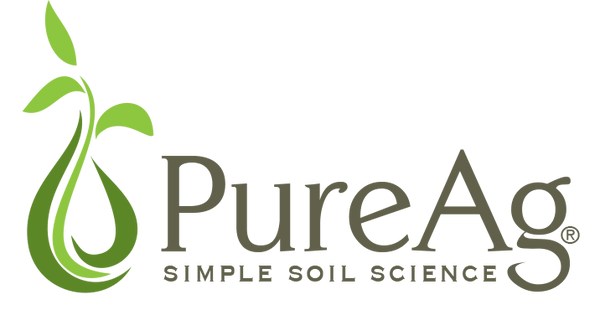With the rising costs of chemical NPK inputs, it’s the perfect time to explore the advantages of augmenting your inputs with biology. Biologic inputs are very inexpensive and the results are profound. Building a symbiotic relationship with soil microbes is paramount for natural nutrient uptake. Rebuilding the balance in your soil not only replenishes topsoil by increasing biodiversity, it will help offset the cost and demand for additional NPK. Let’s take a look…
Nitrogen (N) makes up approximately 80% of the atmosphere. Even though there is an abundance of nitrogen in the atmosphere, a plants ability to take advantage of this is very limited. Atmospheric nitrogen is only readily available to a couple of plant species with the assistance of symbiotically associated N-fixing microbes. Microbes have a profound effect on transformation of nitrogen from the atmosphere into the soil. However, nitrogen is not the only element microbes can effectively fix into the soil. Microbes can solubilize phosphorous (P) and iron (Fe) among other elements. They also play a very important role in decomposition of organic matter, enhancing enzyme synthesis and production of hormones within plants. Plants are unable to convert nitrogen from the atmosphere into ammonia. However, rhizobia bacteria consisting of Azospirillum, Enterobacter, Azorhizophillus, Sinorhizobium and Azotobacter colonize the soil surface, the interior of roots (occasionally even the stems and leaves), and can reduce nitrogen into ammonia. This ammonia is then a readily available nitrogen (N) source for the plants. Rhizobia can fix between 100 kg and 300 kg of nitrogen per year. PureAg products, Simple Soil Solution, Simply Rootamendary, Gettin’ Fungi and Biologic Pharm all contain nitrogen fixing rhizobia microbes.
Bacillus licheniformi, which is responsible for breaking down organic matter, plays an extremely important role in the general nutrient cycling in soils. All of these microbes are generally available in most soils but in very low concentrations. Inoculating soils with concentrated doses will improve the health of the soil with carbon and organic matter that will drastically improve plant health and production. PureAg products help improve the symbiotic bonding with plants so there is less demand for chemical fertilizers. The fertilizer is already all around us, but it is not readily available. Microbes are extremely efficient at converting nutrients locked up in the atmosphere and soil, and making them into forms that are readily available. Phosphorous (P) occurs mostly in insoluble forms in the soil and the synthesis of phosphorous is an energy intensive process. Research suggests that the soil contains enough accumulated organic phosphate to last up to 100 years.
If ONLY it could be accessed by the plants.
Pseudomonas and bacillus are recognized as phosphate solubilizing microbes and play a major role in the mineralization of organic phosphorous. Unfortunately, pseudomonas does not occur naturally in high populations in the soil. Soil inoculation will supply the soil with the correct amount of pseudomonas and bacillus to synthesize organic phosphates and make them readily available to the plants root systems. This symbiotic relationship allows plants to absorb phosphates more easily. Psuedomonas microbes also suppress pathogens in the root system through hormone production which ultimately promotes plant resistance to diseases, and promotes growth. Bacillus plays a major role in nutrient cycling by breaking up organic matter in the soil. This organic matter often has several different nutrients including potassium. By processing this organic matter and reducing it into simpler nutrients, those nutrients become readily available to the plants root system. Because microbes have these very efficient physiological process capabilities, chemical fertilizer inputs can be reduced by 25%-50%. Even more in some specific cases. Excessive use of chemical fertilizers damages the health of the soil and often cause damage downstream through processes like eutrophication and leaching. With a well thought out Biologic Farming approach farming gets better year on year as the populations of these species grow. The plants own inherent capabilities are maximized, and the usage of chemicals and poisons are minimized. Plants now can reach their highest levels of capability to produce optimal yields, and reach their maximum natural level of health, as well as strength and resistance to disease and extreme weather. PureAg offers uniquely formulated microbial blends that present an opportunity for farmers to decrease fertilizer inputs, and have a marked positive impact on profits, sustainability, soil and crop quality.
PureAg products while being organic, cannot completely replace inorganic fertilizers. Farmers need to replace whatever nutrients were taken (used) from the soil. In an ecological holistic sense, organic fertilizers and bio-fertilizers have the ability to improve soil health. They increase availability of nutrients that are “locked up” fixed or adsorbed onto soil particles, through improved cation exchange.
Now is the time to explore these biologic benefits and think about being more organic in your farming practice. Most if these approaches are less than twelve ($12.00) dollars an acre per application and could save yourself thousands of dollars on expensive inputs.

